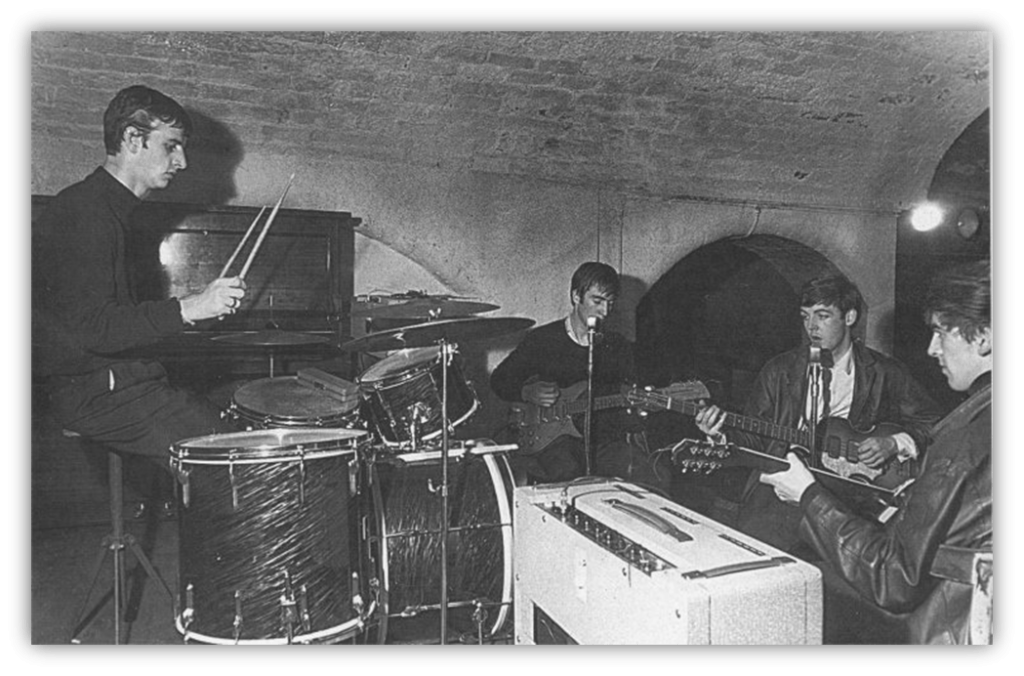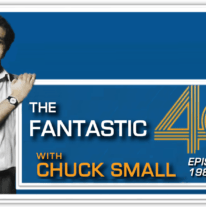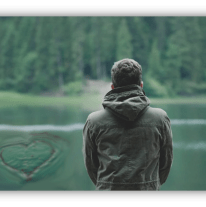Friends, we have reached the end of the FREE4ALL series.
And what better way to close it out than with a piece on The Beatles?

So much has already been written about this band over the years. I honestly don’t know if I can contribute much, if anything, that people don’t already know.
Why then add one more article to the pile? Well, one thing that makes the Beatles special is how they seemingly encapsulated and embodied the time of their creative period together: the 1960s.
This piece won’t offer much in terms of new band gossip. But it might help you digest and synthesize the various strands of art and politics that I’ve previously written about for this series, particularly the later chapters.

A Day In the Life?
Get ready for “A Decade In the Life!”
(oh boy…)
Part One: It Won’t Be Long
November 1956. In Liverpool England, inside an old backyard wartime bomb shelter, four teenage boys practiced together as a newly formed band. The boys played skiffle music, a popular British take on jazz, hillbilly, and blues music that was simple enough for young amateurs to play.

They were all students at Quarry Bank High School, and they named their band after their school.
After just a few months of practice, the Quarrymen would score their first gigs in some local jazz clubs. Around that time, their guitarist John started introducing rock ‘n’ roll tunes to their repertoire, which the jazz club owners did not take kindly to.
Rock ‘n’ roll had started to become a youth sensation ever since American films like Blackboard Jungle and Rock Around the Clock hit theaters overseas in 1955. By the time the Quarrymen were first playing gigs, Lennon and the rest were soaking up the latest hits by Bill Haley & His Comets, Fats Domino, Carl Perkins, and Gene Vincent.

But more than anything, they were struck by the sound and image of Elvis Presley. Watching this slick-haired Adonis electrify the audience around him, John had his first true source of inspiration.
Britain’s own rock ‘n’ roll sensations started to emerge in 1958.
First there was Cliff Richard and the Drifters, who hit the charts with “Move It.” Then the next year came Marty Wilde, Johnny Gentle, Emile Ford & the Checkmates, and then Cliff Richards and The Shadows.
As for the Quarrymen, it would take some time to shape up as a rock band, and several personnel changes.

By the time the band booked their first recording session in June of 1958, newcomers Paul and George had become essential members. John’s old schoolmates eventually all filtered out, and he soon renamed the band The Beatles.
The name was in part a tribute to Buddy Holly & the Crickets, a major influence on their penchant for melodic, harmony-rich rock ‘n’ roll.
In 1960, the band moved to Hamburg, Germany to play seedy nightclubs near the red light district. It was here that they ran into a fellow Liverpudlian named Ringo Starr.

He would join as their drummer shortly after they signed a recording contract with EMI’s Parlophone label in 1962. The team was then complete.
Lennon and McCartney took the lead in songwriting, but this was a tight unit all round, with a great chemistry together.
1963 was the first year of Beatlemania, at least in the UK, Australia, New Zealand, and Sweden. Their first single was a modest success. Their second topped some UK sales charts, but not the coveted Record Retailer chart. Their third managed to top that chart, as did their next string of ten (!) singles. Almost overnight, the four lads were dominating radio playlists and news coverage.

The US market was harder to crack, but “I Want to Hold Your Hand” broke the dam in early 1964. It topped the Billboard chart for seven weeks before being replaced by “She Loves You.” And you know that can’t be bad.
These young men from working class Liverpool families had started out playing music for fun. Suddenly they were international sensations.

Crowds and reporters followed their every move. Women flung themselves at them. They went from country to country to play in front of giant hordes of fans screaming their names.
They were a world-shaking pop phenomenon. They had arguably surpassed even Elvis Presley in terms of fame and fan devotion. But this time, the pop phenom was coming to the US rather than from it. The British Invasion had begun.
Part Two: Think For Yourself
Culturally, they were almost the inverse of Elvis Presley.

He’d been packaged as a rebel, but was a good country boy at heart, working through pangs of guilt for playing the devil’s music and living a life of sin (and then going back for more).
The Beatles had no such hang-ups. Their manager had styled them as the nice boys in suits, but they were street-smart city lads with a taste for mischief.
When he was in college, John developed a deep admiration for free spirits like Jack Kerouac and Allen Ginsberg. And as they continued to grow musically, the packaged pop sensations began to indulge their own independent streaks.
An early example of this was their 1964 tour of the United States.

They were scheduled to play a show in Jacksonville, Florida, and they were worried the venue might be segregated.
This was only a few months after the Civil Rights Act was signed into law, and it was unclear if the state had abandoned its old Jim Crow restrictions.

So the lads issued a press statement that they would not perform in any venue that was segregated by race.
The show they played there turned out to be integrated, yet the band received negative press from local news due to their stance.
To risk their commercial prospects so early in their career took some guts. It signaled that the Beatles would try to navigate the culture industry differently than other entertainers.
This tour was also when the band met Bob Dylan for the first time.
Dylan had gained some popularity after his song “Blowin’ in the Wind” was released by the folk trio Peter, Paul, and Mary. Dylan and other folkies admired the Beatles for their vibrant melodies, while the Beatles admired Dylan for his plaintive, introspective approach to songwriting.

Dylan invited them all to his hotel room, where they smoked a lot of weed, and fell into laughing fits the whole day. The rising pop stars were starstruck fans hanging out with a countercultural hero.
During these years of new fame, the band worked non-stop.

They traveled, they performed, they did interviews, they starred in films. And of course they wrote and recorded more music, about an album every six months. It was beyond exhausting.
Their concerts were a particular challenge. The crowds were so massive and so loud in their adoring shouts, the band couldn’t even hear themselves when they played. They had no idea if they sounded passable or terrible. They couldn’t try new things or even have fun on stage.
And the audience didn’t seem to care. They felt like performing monkeys. It was a dispiriting grind.
Some of that melancholy was captured in their music.

Songs like “I’m a Loser,” “Yesterday,” and even “Help!” featured pensive and introspective lyrics, far from the sappy pop of their teen romance songs.
And the earthy sounds of the folkies got more and more prominent in their albums.
Then in 1966, there was a breaking point. Early in the year, John commented in an interview on the decline of Christianity. His words were somewhat smug (“Jesus was all right, but his disciples were thick and ordinary.”), but they were perfectly sensible for most people in England.

The problem was when the interview was quoted in an American article. Particularly John’s line that “We’re more popular than Jesus now,” which was misinterpreted as a boast.
American evangelicals were outraged. Local radio stations across the States refused to play Beatles songs, and many communities organized public burnings of their records.
The band toured the US again shortly afterward, including a date in Memphis, Tennessee, where the Ku Klux Klan protested outside the venue. There was no violence that day, though a firecracker thrown onto the stage shook the boys up. Their nerves were frayed.
After the tour, they decided to end their live gigs once and for all. From then on, they would interface with their fans primarily through the albums they released.

They could hunker down in the studio, shut themselves off from the outside world, and follow their growing creative appetites.
Part Three: The Inner Light
The band had already made huge creative leaps in their studio recordings.
The strangest thing they had created by far was “Tomorrow Never Knows,” a song John had written after reading Timothy Leary’s book The Psychedelic Experience. By that point, everyone but Paul had already started taking LSD, and John wanted to bring an otherworldly feel to the song.
As for Paul, his third eye had been opened to the sounds of Gesang der Jünglinge by Karlheinz Stockhausen.

He and producer George Martin used musique concrete techniques of tape manipulation to surreal effect on John’s song.
Was this even pop music? Maybe not, but if the Beatles released it, you at least had to seriously ponder the question.
Once they stopped touring, the band entered the peak of their Flower Power phase. “All You Need Is Love.” Sgt Pepper’s Lonely Hearts Club Band. “Strawberry Fields Forever.”
They also got in the mix of the larger hippie celebrity network. They partied with the Rolling Stones. They hung out with Allen Ginsberg, and chatted about the poetry of William Blake. They attended spiritual seminars by esteemed gurus from India.

And John met a fascinating artist from the Fluxus scene, Yoko Ono.
Through Yoko, John would be introduced to the likes of John Cage, Kenneth Anger, Andy Warhol, Ornette Coleman, and many more legendary outsiders.
Over time, the lads followed their own individual pursuits. They formed their own cliques and developed their own habits. And increasingly, they wrote music on their own.
Despite retreating into the studio or psychoactive highs or domestic bliss, the lads still tuned into the news of the world. And sometimes the news informed their music.

Paul wrote “Blackbird” in response to the civil rights struggle of black Americans.

John wrote “Revolution” in response to the many left-wing demonstrations that erupted into riots.

Yet George wrote “While My Guitar Gently Weeps” to voice the growing feeling of isolation he felt among his bandmates.

By the time that the eponymous White Album was recorded, three of them couldn’t stand to be in the same room together. Ringo was the genial glue that kept the band going.
Nevertheless, bitter spats ensued as their giant egos crashed against one another.
Part Four: The End
As the 1960s were coming to a close, so were the Beatles.
George was getting deeper into his new Hare Krishna faith. Paul was spending time with his new wife Linda. John was joining his new wife Yoko in conceptual protest art, and he got deeper into heroin. Ringo had quit the band for a time before rejoining, but still set out to work on his first solo album.
They managed to scrape together two more albums, and the last one they recorded managed to be a masterpiece.

The other was a great idea botched by infighting. This was to be the last Beatles concert, and as a “happening” it worked well enough.
But as an album, it languished as the band fought about the post-production touches John recorded with Phil Spector (they were awful), and which versions should be used. They broke up shortly before the album was released.
George and Ringo were finally free to shine in their own respective spotlights as solo artists. Paul and Linda started to write music together. As did John and Yoko.

John grew more involved in protests against the Vietnam War. As a result, the FBI started a surveillance file on him.
In contrast to his surreal touches in Beatles songs, John’s music in the 70s was nakedly candid.
He was either stridently political, or painfully confessional. His song “God” contains a powerful snapshot of his mental state following the band’s breakup:
“I don’t believe in Elvis,
I don’t believe in Zimmerman,
I don’t believe in the Beatles,I just believe in me, Yoko, and me, and that’s reality.”
What else was there to say?

Closing: Revolution? Nein!

In some ways, the story of the Beatles is a story of four friends trying and ultimately failing to navigate the challenges, contradictions, and absurdities of the modern entertainment industry.
And the whole Beatles phenomenon is a story of our world’s cultures unified and yet driven mad by mass media technology.
At the same time, I think their story works as a set of symbols for the era as a whole:
- Individuals come together and work wonders as a collective unit.
- Their work is accessible yet powerful, increasingly adventurous as they expand their horizons.
- Their vision turns downright utopian, but then reality crashes around them.
- Personal interests take priority over collective ones, and group unity disintegrates.
- The individuals are each left isolated and bitter, sniping one another in the press. The work they do on their own isn’t as good as what they used to do together.
And so the great hopes of the 60s eventually crashed into the cynicism of the 70s.
The liberal self-expression of the former era largely curdled into self-indulgence and escapism.
Community ties weakened, and our powers to change the world through collective action began to wane. The organizing that did arise was ever more radical and militant, and fragmentary.
After decades of progress, our noble quest to make the world free for all had turned:
Into a free-for-all.
Okay, so this era was one of rude awakening. Duly noted. What about what came next?
- What happened to the disaffected hippies?
- The edgy artists?
- The embattled civil rights activists?
- The radicalized conservative lobbyists?
- The typical Beatles fans?
Well, whatever it is, it’s beyond the scope of FREE4ALL!
I will be back with a sister series some time soon. From there I will try to add some context to this new era. And it’s not all bad.

But it is a new way of looking at the world.
Thanks for reading, everyone!

Let the author know that you liked their article – and the series – with a “Green Thumb” Upvote!





Kudos on such a thought-provoking ride!
For as much as I’ve read and immersed myself in the Beatles over the years, you threw something new at me. Using the band’s arc as a stand-in for the progression/disintegration of humanity’s tendency to come together, dream big and then break apart is something I’ve not seen before. I think it works well. The 60s is not the only occurrence of this but it’s the one that hits closest to home, as we are living out the cycle as we speak. Nice work.
And it all comes together in the paragraph with the links back to previous articles in the series. This is really good stuff, Phylum.
I can only hope another 60s is around the corner. We’ve been stagnating and/or backsliding — politically and culturally — for too long.
The goal was to make it all Come Together. Else it was Maxwell’s Silver Hammer for me!
The received wisdom down the years was that the final couple of years were a joyless grind with Let It Be the prime example. There were certainly personality clashes and arguments but one of the joys of watching Get Back was that in amongst that they did still have fun together, especially when they’re jamming together and covering old songs.
If they’d brought in someone to replace Brian Epstein in 1967 it might have worked out differently. Without anyone to take charge they got carried away with an idealistic naivety. They were creators rather than business people so although they may still have launched Apple, had they had a proper manager to oversee it and rein in their every whim it might have worked.
It then seems counter intuitive that the counter cultural revolutionary zeal of John was hoodwinked by the hard nosed businessman / thug that was Allen Klein who only made matters worse.
As a marker for the decade’s progression and the cultural changes they do make a compelling study. All done at lightning pace from first to last album as well.
Agreed about the still having fun together. Having heard some of expanded white album tracks, it’s evident that the boys, while graduating from their unified group, could still have fun together. This and seeing Jackson’s Get Back with it’s moments of laughter made me happy. I know it was a stressful breakup, but I was glad to see/hear that it was more than just bitterness.
And thank goodness for Ringo. Thank goodness for Ringo.
He was a good apple.
https://translate.google.com/?sl=en&tl=ja&text=apple&op=translate
Yes, like a slowly disintegrating marriage, there were likely many good days, and Get Back highlighted how they could still work well together even in those later years. At least until the old resentments bubbled over and broke everything apart.
As captivating as Get Back was, I’m still struck by how much wasn’t captured in those 8 hours. One example is Yoko Ono. Viewers would be forgiven for being completely befuddled by this person just sitting their silently for hours, reading a paper, etc. But they don’t realize that she was nodding off from heroin, trying to numb her grief from a recent miscarriage. What seems odd or funny is actually quite sad when you know the context. The film is an incredible achievement all the same.
This was a terrific series – thank you!